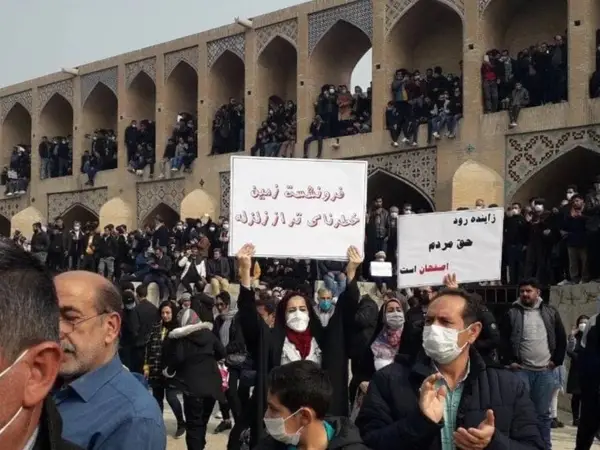A renowned sociologist in Iran says that a subtle shift has taken place in the nature of people's demands from political change to urgent economic and social issues.
Academic Taghi Azad Armaki in an interview said that Iranian politicians and political activists have largely not noticed the significance of this shift, although ultimately it is going to be dangerous for the government since economic and social demands relate to concrete issues.
Armaki added that the protests in Esfahan last month over lack of water and the nationwide protests by teachers demanding a long overdue pay adjustment and job classification are the examples of this shift.
However, in most economic protests it does take long for people to shift their focus to the regime and raise slogans against the very essence of the Islamic Republic.
Meanwhile, he said that Iran's reformists have failed to represent the people before the government, partly because the conservative core of the regime has pushed them aside from the country's political dynamics and practically ignored their presence.
Other analysts have tried to explain other dimensions of the same problem. Conservative analyst Amir Mohebbian has said in an interview with the economic daily Donyaye Eqtesad, "We need to reconsider the concept of being revolutionary." He added that "Today, some revolutionaries look for what the people like and then they take a rejectionist stance against it."
Mohebbian was probably talking about Kazem Mousavi the lawmaker who said those who like sunglasses and western lifestyle should leave the country, or hardline journalist Hossein Shariatmadari who has said the government should ignore demands for a pay increase for government employees and further suggested that all social media outlets should be banned altogether.
Some reformists' view about what is going in the Iranian society also indicate that the situation described by Armaki is getting worse.Mohammad Reza Tajik has told reformist daily newspaper Sharq that Iran's reformists can no longer return to power by scaring the voters of their conservative rivals. People are looking beyond the traditional dichotomy of Conservatives versus reformists.
Tajik also pointed out that under current circumstances there is little or no room for reformists in Iranian politics. He said not only the ruling conservatives will not allow reformists to be politically active, but they even cannot tolerate some of the more or less independent or moderate conservative figures. He was possibly talking about the situation of Former Majles Speaker Ali Larijani who was barred by hardliners to run in the June 2021 presidential election.
According to Armaki, however, the only chance for reformists is to align themselves with various social groups and support their grievances, otherwise, they will be kicked out of the political circus if they want to continue their position as a political alternative to the current political system.
Speaking about hardliner conservatives such as Shariatmadari and Kazem Mousavi, Armaki said, "Hardliners do not want and cannot suppress the society's social and cultural demands. The most they can do is to fan short-lived controversies with their state of denial by saying that "There is no value in social media," or "Relations with the world are not important," or "We need to fight the corrupt West." He said the state of denial highlights the fact that hardliners cannot deal with these issues. But regardless of their denials, they have to face the consequences of some of those demands at one point, when the need to have good relations with the West, or supply water to Esfahan become urgent matters and endanger the regime.
